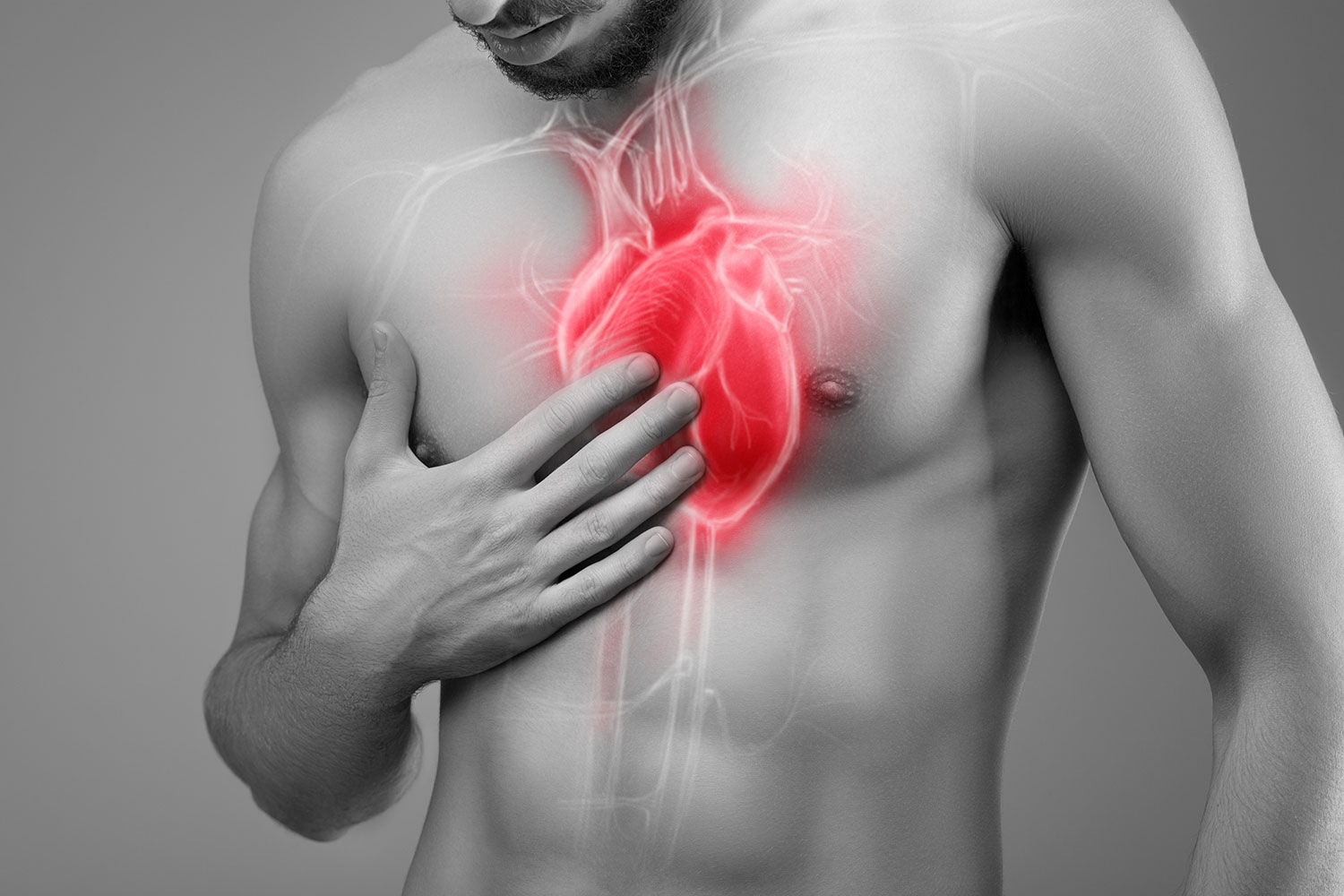Stay ahead of heart disease with Cardiology Jupiter’s approach
Stay ahead of heart disease with Cardiology Jupiter’s approach
Blog Article
Comprehending the Value of Cardiology in Modern Health Care Providers
Cardiology plays an essential duty in modern-day health care, specifically as cardiovascular disease proceeds to be the leading root cause of mortality worldwide. Breakthroughs in diagnostics and therapy have actually changed patient treatment, allowing earlier interventions and enhanced end results. Moreover, the change in the direction of preventive cardiology equips individuals to handle their health and wellness proactively. As technology remains to evolve, the assimilation of innovative options may even more redefine cardiology's effect on public health, triggering a more detailed evaluation of arising patterns and their implications.
The Frequency of Heart Illness and Its Influence on Public Health And Wellness
Heart condition remains the leading reason of death globally, its influence prolongs far past individual people to impact public health and wellness systems and economies. The high prevalence of heart problem positions a significant pressure on medical care resources, demanding raised financing for avoidance, treatment, and rehab programs. Public health and wellness initiatives must attend to danger variables such as obesity, smoking cigarettes, and sedentary lifestyles, which add greatly to the increasing occurrence of heart conditions.Moreover, the financial worry connected with heart disease is immense, incorporating not only direct medical costs yet likewise indirect expenses associated with shed productivity and premature mortality. Communities face challenges in managing these costs, typically leading to differences in medical care gain access to and outcomes. As the population ages and lifestyle-related risks continue to escalate, the urgency for reliable cardiology treatments comes to be paramount. Resolving heart disease is not only an issue of specific wellness however also an essential public health top priority.
Advancements in Heart Diagnostics and Imaging Techniques
Recent developments in cardiac diagnostics and imaging methods have actually revolutionized the area of cardiology, boosting the capacity to detect and check heart conditions. Methods such as heart MRI, CT angiography, and echocardiography have become significantly innovative, providing detailed pictures of heart structures and functions. These methods permit the very early recognition of problems like coronary artery condition, cardiac arrest, and valvular disorders.Moreover, innovations in non-invasive diagnostics, such as wearable technology and remote surveillance devices, have encouraged clients and doctor. These tools assist in real-time monitoring of heart rhythms and various other essential indications, causing prompt interventions. In addition, fabricated intelligence is being incorporated into imaging evaluation, boosting accuracy and performance in medical diagnosis.
Developments in Therapy Alternatives for Heart Issues
Current improvements in cardiology have actually caused significant innovations in therapy choices for heart disease. These include innovative surgical strategies that enhance step-by-step end results and arising medications that use brand-new avenues for treatment. As the field progresses, these advancements play an important role in improving client care and end results.
Advanced Surgical Techniques
Innovations in surgical strategies have actually changed the landscape of cardiology, using new wish for patients with heart conditions. Minimally intrusive treatments, such as catheter-based interventions, have actually significantly minimized recovery times and medical facility keeps. Techniques like robotic-assisted surgical treatment boost accuracy, permitting surgeons to navigate complicated physiological structures with higher accuracy. Moreover, advancements in imaging technology facilitate real-time visualization throughout procedures, improving results. Transcatheter aortic shutoff substitute (TAVR) exemplifies an innovation in dealing with aortic constriction, allowing valve replacement without open-heart surgical procedure. Furthermore, hybrid strategies that combine medical and catheter-based approaches provide tailored remedies for various cardiac concerns. These sophisticated medical methods not only boost client security yet additionally increase treatment alternatives, emphasizing the crucial role of development in modern-day cardiology methods.
Emerging Medicines and Treatments
As the landscape of cardiology continues to evolve, arising drugs and treatments play a critical duty in boosting treatment options for heart conditions. Developments such as unique anticoagulants and progressed lipid-lowering representatives have actually transformed the monitoring of heart diseases, greatly reducing person morbidity and mortality. Additionally, the growth of genetics treatments and regenerative medicine uses promising opportunities for treating conditions previously regarded irreversible. Medical trials are continuously revealing the efficacy of these treatments, pushing the limits of traditional treatments. Moreover, the assimilation of electronic health and wellness innovations helps with customized medicine, enabling customized treatment plans based upon genetic and lifestyle elements. Collectively, these improvements underscore the vibrant nature of cardiology, improving individual outcomes and redefining requirements of treatment in contemporary healthcare.
The Role of Preventive Cardiology in Individual Care
Preventative cardiology plays an essential function in client care by focusing on the identification of danger factors that add to cardiovascular disease. Via way of living adjustment approaches and very early discovery strategies, doctor can efficiently lower the occurrence of cardiovascular occasions - Cardiology Jupiter. This positive approach not just improves patient end results however also advertises long-term health
Danger Aspect Recognition
While heart diseases remain a leading reason for morbidity and mortality worldwide, effective danger variable identification acts as a cornerstone of preventative cardiology. Determining threat elements such as high blood pressure, hyperlipidemia, diabetes, and household history is essential for early intervention. Health care professionals utilize numerous evaluating techniques to examine these elements, enabling for tailored safety nets. Furthermore, understanding an individual's lifestyle choices, such as cigarette smoking and physical inactivity, even more informs danger assessments. This complete analysis allows clinicians to create personalized treatment plans aimed at mitigating risks. By focusing on threat variable recognition, medical care systems can enhance person results and decrease the total worry of heart diseases, inevitably contributing to improved public health and wellness methods and resource allowance.
Way Of Living Adjustment Strategies
A wide variety of researches highlights the essential role of way of life alteration strategies in decreasing heart disease threat. These strategies encompass dietary adjustments, raised physical task, smoking cessation, and weight administration. By taking on a heart-healthy diet plan abundant in fruits, veggies, whole grains, and lean healthy proteins, individuals can decrease cholesterol levels and blood stress. Regular exercise reinforces the heart and boosts general cardio wellness. In addition, giving up smoking cigarettes significantly decreases the danger of heart problem and improves recuperation prices for those with status quo. Weight monitoring better adds to cardio health by alleviating various other risk elements such as diabetes mellitus and hypertension. Carrying out these way of living transforms not only advertises individual well-being but likewise works as a keystone of preventative cardiology in patient treatment.
Early Discovery Techniques
Way of life modifications considerably contribute to decreasing cardio disease dangers, however they are most reliable when combined with early detection strategies. Preventive cardiology stresses the significance of identifying potential heart concerns before they intensify right into severe problems. Methods such as high blood pressure surveillance, cholesterol testing, and advanced imaging modern technologies like echocardiograms play critical roles in reviewing cardiovascular health and wellness. Biomarkers and genetic testing additionally enhance the accuracy of early detection, enabling customized precautionary methods. Routine heart threat analyses encourage doctor to intervene proactively, possibly stopping cardiac arrest and strokes (Cardiology Jupiter). By incorporating these early discovery techniques into regular treatment, people can gain from prompt lifestyle treatments and targeted therapies, ultimately boosting and boosting outcomes lifestyle
Integrating Innovation Into Cardiology Practices
As developments in modern technology navigate to this website proceed to improve various areas, the integration of ingenious tools and systems into cardiology methods has become important for boosting client care and results. Telemedicine platforms permit cardiologists to keep track of people from another location, improving access to care while lowering the problem on healthcare facilities. Wearable gadgets, such as smartwatches, enable constant heart rate surveillance, signaling both physicians and patients to potential issues in real-time. Furthermore, expert system (AI) is being utilized to evaluate vast amounts of heart data, helping in very early diagnosis and personalized therapy plans. Advanced imaging strategies, including 3D echocardiography, boost visualization of heart frameworks, causing more accurate interventions. Digital health records (EHRs) simplify person info administration, guaranteeing that cardiologists have instant access to essential data. With each other, these technical improvements are transforming cardiology, advertising aggressive monitoring and improved health and wellness end results for clients with cardiovascular conditions.
The Value of Individual Education And Learning and Interaction
Patient education and learning and engagement play an essential function in the monitoring of cardiovascular wellness. By furnishing clients with understanding about their conditions, treatment options, and lifestyle adjustments, doctor empower people to take an active duty in their care. This aggressive technique can lead to improved adherence to recommended medications, dietary adjustments, and workout programs, eventually lowering the danger of complications.Engagement likewise promotes a solid patient-provider connection, urging open interaction and trust fund. When people feel notified and involved, they are a lot more most likely to voice concerns and ask inquiries, which can bring about much better professional end results. Furthermore, instructional sources, such as workshops or electronic systems, can enhance understanding and promote self-management approaches. Overall, prioritizing person education and engagement is necessary for enhancing cardiovascular wellness, improving top quality of life, and reducing health care costs connected with cardio diseases.
Future Fads in Cardiology and Their Possible Effect

Regularly Asked Questions
What Way Of Living Modifications Can Minimize Heart Problem Risk?
The existing question addresses way of living changes that can significantly minimize cardiovascular disease danger. Cardiology Jupiter. Taking on a well balanced diet plan, involving in normal exercise, maintaining a healthy weight, taking care of stress and anxiety, and avoiding tobacco can especially enhance cardio wellness
Just How Can I Identify Early Indicators of Heart Problems?
Identifying early indicators of heart issues entails tracking signs such as upper body discomfort, shortness of breath, exhaustion, and uneven heart beat. Prompt awareness of these signs can prompt necessary clinical examination and intervention for better outcomes.
What Are the Differences In Between Cardiologists and Cardiac Surgeons?
The distinctions in between cardiologists and cardiac doctors exist in their duties; cardiologists mainly diagnose and manage heart disease via non-invasive methods, while cardiac surgeons carry out surgical procedures to fix architectural heart issues. Each plays an important, distinctive duty.

Just how Commonly Should I Obtain My Heart Wellness Checked?
The frequency of heart checkup differs based on private danger elements. Normally, grownups must undertake assessments each to two years, click here for more while those with present conditions may require even more frequent evaluations as suggested by healthcare experts.
What Duty Does Genes Play in Cardiovascular Disease Risk?
Genes substantially influences cardiovascular disease danger, with domestic patterns indicating inherited problems. Details genetics can incline individuals to hypertension, cholesterol issues, and other cardio troubles, highlighting the relevance of hereditary screening in evaluating heart health and wellness. Heart illness remains the leading reason of death globally, its effect prolongs much past specific patients to affect public wellness systems and economies. Public wellness initiatives have to address danger aspects such as excessive weight, cigarette smoking, and inactive way of lives, which add substantially to the increasing incidence of heart conditions.Moreover, the economic concern connected with heart illness is immense, including not just straight clinical expenses however likewise indirect expenditures related to shed performance and premature death. Preventive cardiology plays a crucial duty in patient care by concentrating on the identification of danger factors that add to heart illness. Synthetic knowledge (AI) and device discovering are boosting diagnostics and client tracking, making it possible for very early discovery of heart conditions. The distinctions between cardiologists and cardiac specialists lie in their roles; cardiologists primarily identify and handle heart conditions through non-invasive techniques, while cardiac specialists execute surgical procedures to correct architectural heart concerns.
Report this page